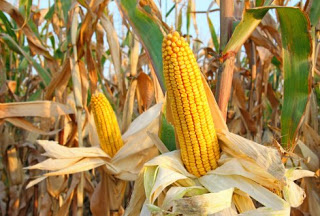

| Online: | |
| Visits: | |
| Stories: |

| Story Views | |
| Now: | |
| Last Hour: | |
| Last 24 Hours: | |
| Total: | |
Researchers predict that climate change will cause an increase in mycotoxins in maize
The global rise in temperatures will lead to an increase in the mycotoxin aflatoxin B1 that can affect maize. This is according to a predictive analysis performed by RIKILT Wageningen University & Research together with researchers from Italy. The mycotoxin aflatoxin B1 is produced by a fungus that grows in plants such as maize and has the most potent acute and chronic toxicity of all mycotoxins. The growth of this fungus on plants and the production of aflatoxin are predominantly determined by weather conditions.
The emerging risk of climate change
Climate change is often referred to as a cause for the emergence of global food and feed safety risks. The possible concurrent increase in aflatoxin levels is an added concern and prompted RIKILT to perform further studies.
Based on different temperature scenarios, researchers made predictions about the aflatoxin contamination of maize in the next one hundred years. These scenarios took into account a temperature increase of 2 °C and of 5 °C using a model approach. In this model, Europe was divided into more than 2,000 squares measuring 50 x 50 km each. The climate data at the central point in each square was used and coupled to a predictive model for aflatoxin.
Temperature increase of two degrees the most likely scenario
The conclusion drawn from the model approach indicates that a temperature increase of 2 °C will present the most significant risk for the aflatoxin B1 contamination of maize and thus food safety in Europe. Reports published by the Intergovernmental Panel on Climate Change (IPCC) show that a temperature increase of 2 °C in the next few years is the most likely scenario. A scenario of a 5 °C increase in temperature demonstrated that fewer problems were expected in this case.
This study was commissioned by the European Food Safety Authority (EFSA) and the results will help to determine aflatoxin regulation policies to prevent the increased consumption of aflatoxins by both humans and animals.
@ Researchers predict that climate change will cause an increase in mycotoxins in maize – WUR:
Source: http://gmopundit.blogspot.com/2016/11/researchers-predict-that-climate-change.html



